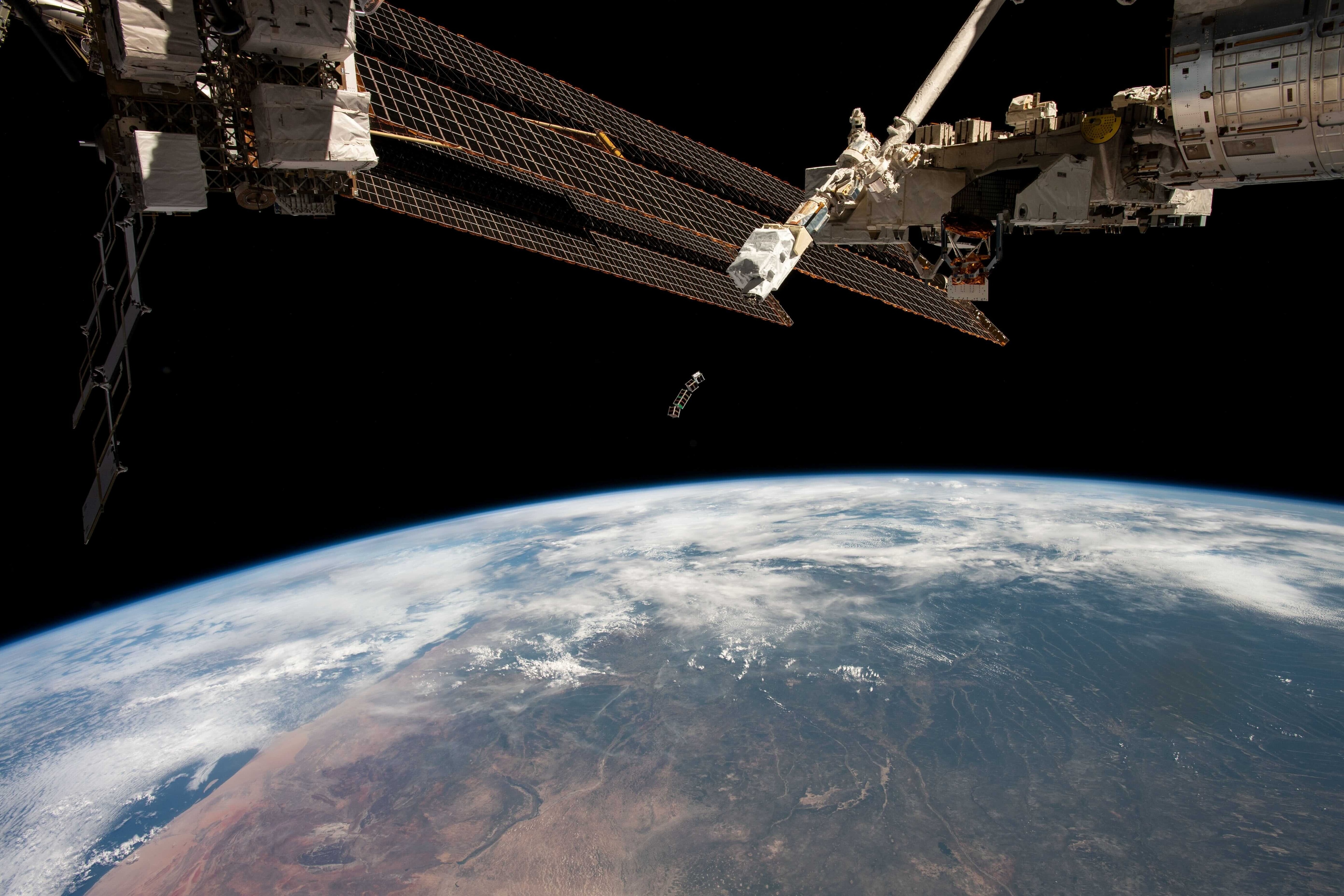How Africa's women can drive the 4IR forward

Harvesting the gains of the 4IR? An agri-tech entrepreneur in Lagos, Nigeria Image: REUTERS/Akintunde Akinleye
In 2019, we are entering an exciting period of history when the world expects balance. We know that a more balanced, less biased world is a better one.
Over the last decade, there has been a rapid increase in crowdfunding and crowdsourcing, in collaboration and open innovation. Companies are moving away from a model where their products and services are created through a closed, top-down, expert-led process and towards one that incorporates open, user-driven strategies. Nonprofits, philanthropists, foundations and community groups are tackling pressing problems in an increasingly complex and globalized world, and more are embracing co-creation as a solution.
Companies are born global because they are born digital. Today’s world demands that we get good at sustained collaboration, and that we do it quickly. When people think of globalization, they often picture factories moving their logistics, warehouses and production facilities to China, India or Mexico. But in reality globalization is a voluntary, mutually consenting exchange of goods and services between a buyer in one country and a seller in another.
The rise of digital platforms can create new opportunities for women or leave them further behind. The International Finance Corporation-led initiative Digital2Equal brings together 17 leading technology companies to boost opportunities for women in emerging markets.
Aishat, owner of Aeesha Collections in Lagos, and one of the entrepreneurs trained in the Women Entrepreneurs and Mobile Value Added Services program at the Youth for Technology Foundation (YTF), often expresses frustration with the difficulty of sourcing materials for her products locally. If a platform could connect vendors with credible suppliers, it could help women entrepreneurs in emerging markets access resources and capital, alleviating growing pains for their businesses. The benefits of broadening access to the internet are clear. Research suggests that up to $18 billion a year could be added to the GDP of 144 developing countries if 150 million people were given internet access. Women and girls are 50% less likely to have access to the internet and 14% less likely to have access to mobile phones. Reducing their barriers to entry will mean more people using online platforms – a win-win situation for both companies, and women entrepreneurs like Aishat, across emerging markets.

Globalization 4.0 is about balance. It will require that we communicate across cultures, sharing beliefs and approaches. It will require that we function in and understand highly centralized structures of power, as well as ever-changing societal movements and social norms. It will require we use skills that many women have: the ability to have a strong emotional quotient, to understand body language and other people’s perceptions. The ability to communicate well, to communicate across time zones and to work in ways that are less hierarchical. The ability to bring consensus, to mentor people – all these skills that we, as women, bring because of who we are.
The renowned science-fiction writer Arthur C Clarke once said: “There is hopeful symbolism in the fact that flags do not wave in a vacuum.” The full power and potential of ideals and ideas can be realized only when many different forces – some of them countervailing – contribute to their development. In essence, this is what globalization 4.0 will require. It requires we work with new groups in different ways.
We can see this kind of inter-sector collaboration happening today. For instance, the World Bank Group partners with LinkedIn to provide information on skills likely to be in demand in the future. Fintech and blockchain enable companies to bank the unbanked faster than ever before. Mobile applications and drones provide eyes on the ground in conflict settings, allowing organizations to deliver life-saving treatment to remote areas. Computer-assisted instruction and digital platforms can be game-changers in the education sector, the first by enhancing the effectiveness of teachers and the second by expanding access to state-of-the-art knowledge. To function properly, these disruptive technologies typically require shared expertise, data and capital, and will therefore benefit from partnerships between the public and private sectors.
The demand for so-called hard skills that complement these technologies is also rising, but so too is the need for cognitive and socio-emotional skills that enable people to adapt to whatever the jobs of the future might require. These soft skills are more difficult to learn.
Africa has a particularly exciting future. Developed countries around the world face an impending skills shortage as their populations age faster than they grow. The OECD found that 40% of US firms currently face skills shortages. In Japan, that figure is 81%. Meanwhile, the population of Africa will grow from 370 million in 2010 to 600 million in 2030. Provided they have the right mix of soft skills and hard STEM skills, African workers could very well become the driving force of global organizations.
The World Economic Forum’s Future of Jobs Report notes that technology has the potential to create 58 million new jobs by 2022, but that 54% of employees will require reskilling in order to harness the potential of the Fourth Industrial Revolution. Another Forum report, Towards a Reskilling Revolution, tells us that while 1.4 million jobs in the US alone are expected to be disrupted by technology and other factors between now and 2026, 95% of the most at-risk workers could find good-quality, higher-wage work in growing fields given adequate reskilling. How then do we reskill young people to manage these shifts when most of the jobs once done by human beings are being performed by machines?
The human capital index shows that countries all over the world are going through a human capital crisis, because while they know that the nature of work will change, they don’t know how many current jobs will be lost. Many are not providing their young people with the kind of education they’ll need to thrive in the new environment. Our work at Youth for Technology Foundation has shown that we must teach women and youth how to learn and adapt in the changing economy. Efforts like 3D Africa help them grow comfortable with a human capital-centered approach to globalization, upskilling them for jobs that don’t yet exist. We are enabling a shared stakeholder approach between the private sector, academia and youth.
Skills like empathy are going to become differentiators as artificial intelligence and machine learning take over other tasks. These soft skills have generally been viewed as less important than hard ones, but in the Fourth Industrial Revolution, they will be more valuable. We are far from the day when machines can genuinely empathize. To quote Teddy Roosevelt: “No one cares how much you know until they know how much you care.” By 2030, as many as 47% of jobs will be automated. That could pose an especial risk for girls and women, who have not always had equal access to studying STEM and have had to deal with cultural biases that push them away from pursuing such skills in their educations and careers. If we are not proactive, the era of automation could leave them even further behind. However, it is important to realize that as old jobs disappear, new jobs requiring little or no STEM background will also be created. These positions will be filled by people who have the soft skills needed to train machines to appear somewhat more human.
As we enter this new era, we cannot afford to rely on any one group of organizations or coalition of interests to make the right decisions and bring about the right outcomes. We have to be both pragmatic and radical, working with what is there as well as supporting, encouraging and reinforcing new modes of organizing that will grow in importance as Globalization 4.0 gets underway and we begin to witness balance and parity for a better world.
Don't miss any update on this topic
Create a free account and access your personalized content collection with our latest publications and analyses.
License and Republishing
World Economic Forum articles may be republished in accordance with the Creative Commons Attribution-NonCommercial-NoDerivatives 4.0 International Public License, and in accordance with our Terms of Use.
The views expressed in this article are those of the author alone and not the World Economic Forum.
Stay up to date:
Gender Inequality
Related topics:
Forum Stories newsletter
Bringing you weekly curated insights and analysis on the global issues that matter.
More on Global CooperationSee all
Natalie Unterstell and Alex Scott
September 22, 2025






